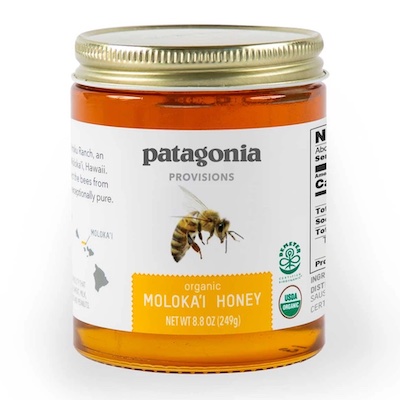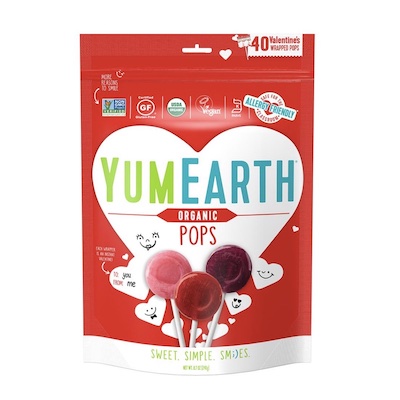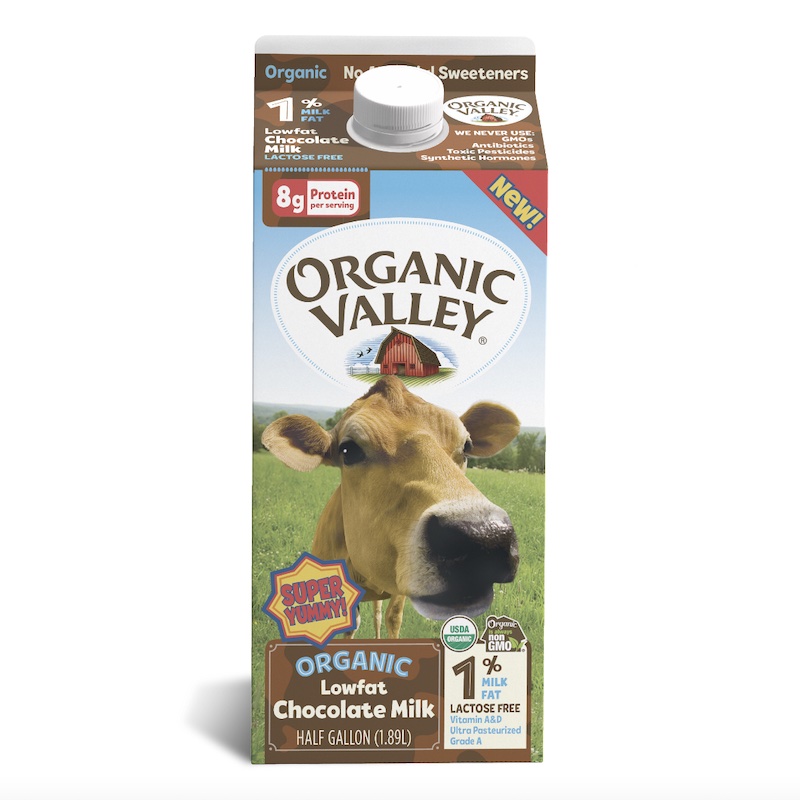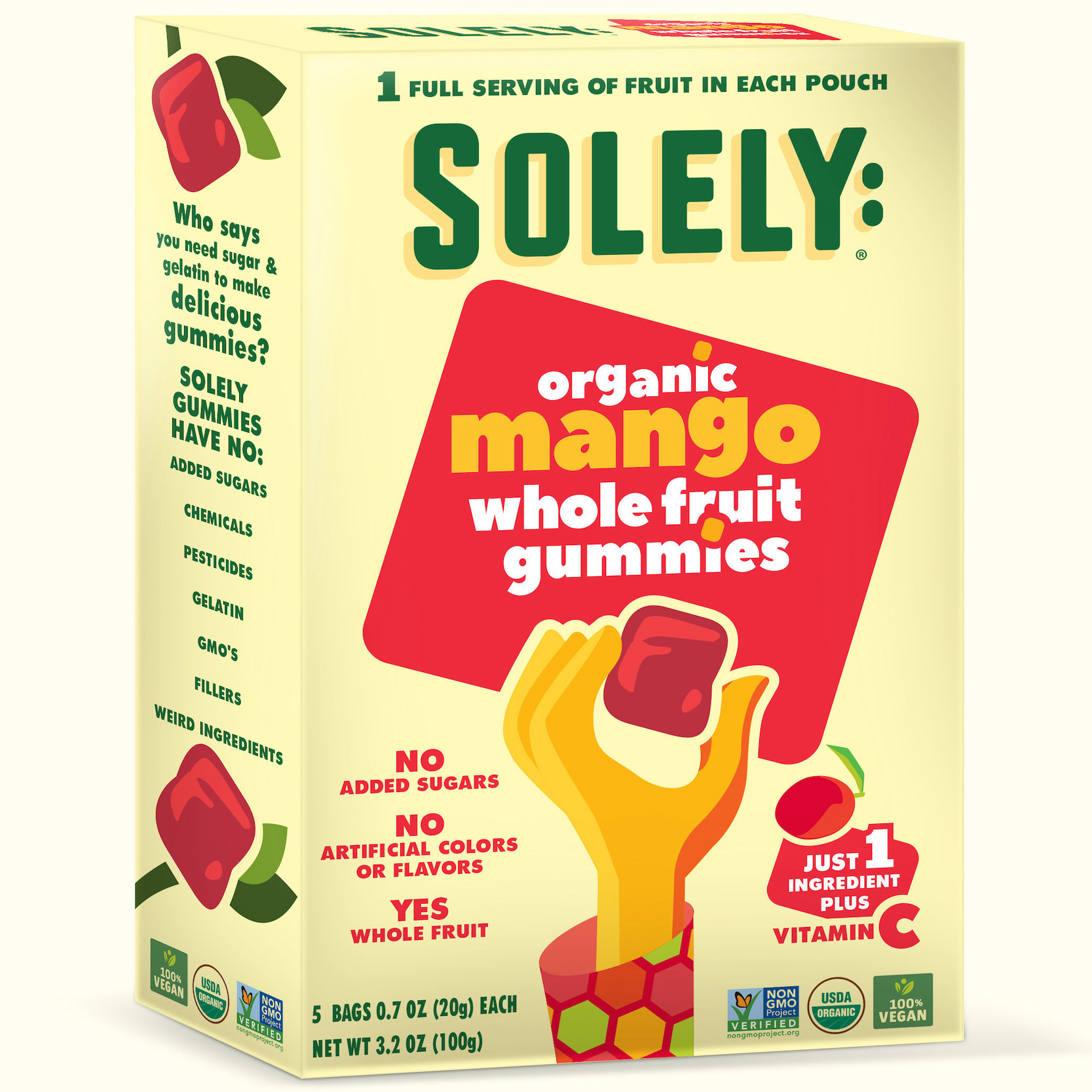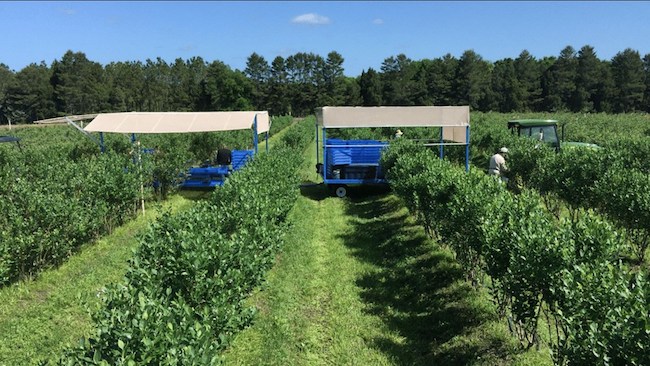
If We Want Better Enforcement and More Clarity on Rules, the Industry Needs to Change its Approach
(Photo courtesy of The Real Organic Project)
Please be sure to follow us on LinkedIn and Instagram, and you can support our work by forwarding this email to your colleagues and having them subscribe. Thank you!
It seems beyond comprehension that organic — a $55 billion dollar marketplace in the U.S. — can operate without a clear set of rules in some of its most important sectors, and here are a few examples of how it has impacted the industry.
* Loopholes and lack of clarity in the Origin of Livestock rule
This rule, which governs how animals are transitioned into organic production, has allowed some big operators to grow into 2,000 – 5,000 herd operations very quickly and has come at the complete expense of smaller organic dairy farms, many of whom have suffered total financial ruin.
In a 2013 report, the USDA’s Office of Inspector General acknowledged that there was a serious problem with the Origin of Livestock rule. In 2015, an amended Origin of Livestock rule was proposed but never formally passed.
In December 2019, Congress included a provision in the Fiscal Year 2020 Agriculture Appropriations bill requiring USDA to finalize the long-delayed rule by June 17, 2020. The USDA missed that deadline.
Last week, a letter signed by 118 organic organizations and 249 organic farmers from across the nation was sent to the acting Secretary of Agriculture asking for USDA’s National Organic Program to finalize the Origin of Livestock rule as soon as possible in order to save family dairy farms.
* The three-year transition period — one of the absolute cornerstones of organic standards — is not being uniformly enforced in all parts of the industry.
Last summer, the Accredited Certifiers Association, Organic Farmers Association and National Organic Coalition partnered to conduct a survey with certifiers on certifier policies regarding the circumstances under which they require a three-year transition period after the spraying of a prohibited substance, such as glyphosate.
The findings showed a tremendous disparity of interpretation for a three-year transition when it came to greenhouses and hoop houses. This is of real importance because with climate change and the demand for organic produce continuing to surge, greenhouse production is estimated to increase as well.
* There is an incredible discrepancy in production methods across many sectors of organic, particularly with eggs, dairy and poultry.
The Cornucopia Institute puts out an Organic Dairy Scorecard and an Organic Egg Scorecard for a reason — because not all organic milk or organic eggs are the same.
This also holds true for organic berries, tomatoes and greens, some of which are grown in soil and some of which are grown hydroponically.
STRUCTURAL LIMITATIONS BUT MUCH OF THIS IS ON US
The National Organic Standards Board (NOSB), which makes recommendations to the USDA about rules, ingredients and processes, rotates each of its 15 members off of the board every five years, something that makes it exceedingly difficult for the NOSB to retain any institutional memory.
This churn also holds true for our federal government, which oversees the National Organic Program, as the president and the USDA are changing hands every four or eight years.
It is not a flaw in the system that there is such turnover. This is what happens, for better or worse.
While it is convenient to blame the government for our woes, we also need to acknowledge that our efforts, as an industry, are not yielding a strong regulatory system.
And that if we want to see changes, we must also alter our approach in two specific ways.
First, individuals and companies need to be spending much more time communicating directly with their elected officials in Washington, D.C. and at the USDA, and not outsourcing this work to someone else.
“Now is the time to show up, lend your voice and be engaged. When we go to meet with a member of Congress or the USDA Secretary, and they have heard from their constituency about a specific issue, there is a level of familiarity and we get a different response from them,” said Abby Youngblood, Executive Director of the National Organic Coalition.
Second, it is long-overdue that consumer advocacy groups become empowered and supported to a much, much greater degree.
The Organic Trade Organization (OTA) plays a valuable role in the industry, particularly with promotion and research. However, it is a trade group — not a watchdog organization — and far too many people conflate the two.
“There are nine national organizations that operate in the public interest keeping a close eye on the organic program — Beyond Pesticides, Center for Food Safety, Organic Farmers Association, National Organic Coalition, The Cornucopia Institute, Organic Consumers Association, Consumers Union, Wild Farm Alliance and OrganicEye — and on all of the hot button issues, their views are diametrically opposed to those of the OTA. As long as people think that the OTA is a non-profit watchdog, no one will give equal credence to the public interest community,” said Mark Kastel, Co-Director of OrganicEye.
With Tom Vilsack expected to take the reins again at the USDA, we are all hoping that it is not a repeat of his time running the agency from 2009-2017. But it’s incumbent upon the organic industry to show up differently as well.
 |
With gratitude, 
Max Goldberg, Founder |
Quick Hits
* Congrats to Alexandre Family Farm for becoming the first and only Regenerative Organic Certified dairy farm in the U.S.
* Important NYT story about an organic peanut farmer in Georgia: Two Biden Priorities, Climate and Inequality, Meet on Black-Owned Farms.
* The Bionutrient Food Association’s 10th Annual Soil & Nutrition Conference will be held virtually every Thursday at 3pm EST, from February through September.
* The rapidly-growing organic beverage brand Lemon Perfect is leaving LA for Atlanta.
* On February 25th, Steven Hoffman will be interviewing Whole Foods Market Co-Founder/CEO John Mackey on his live Zoom show Compass Coffee Talk. Registration is free.
* Rodale Institute’s new virtual campus now makes decades of regenerative organic research and expertise available on demand.
* Thrive Market has given a progress update on Food Equality Now.
* Organic, plant-based broth company Beyond Broth has rebranded to Grace’s Goodness Organics.
* This new synthetic biology test could force the natural products industry to define its position.
* The world’s largest organic wine fair is now digital.
* We had a fantastic turnout last night on Clubhouse talking about the HumanCo SPAC and 2021 Trends. Thanks to Jason Karp and Kat Cole from HumanCo SPAC for their time and great insight. Please join us next Tuesday at 8pm EST (follow @organicinsider on Clubhouse) where we’ll be having a conversation about this newsletter.
New Organic Products
Moloka'i Honey from Patagonia Provisions
From Patagonia Provisions, the organic Moloka’i Honey is the first certified Biodynamic honey in the U.S. and comes from the Pu’u O Hoku Ranch on the Hawaiian island of Moloka’i, where honey bees roam on 14,000 acres of pristine conservation land and certified Biodynamic farmland, free of synthetic toxins. This honey is exceptionally pure, with hints of toasted brown sugar and caramel.Allergy-Free Valentine's Day Treats from YumEarth
With Valentine's Day right around the corner, YumEarth has launched a variety of allergy-friends treats for this special day. Non-GMO and free from the top eight allergens, the line-up includes gummy fruits, giggles and lollipops.Lactose-Free, Lowfat 1% Chocolate Milk from Organic Valley
New from Organic Valley is a 1% lowfat chocolate milk. With a kid-friendly taste and lactose-free formulation, it offers the same nutrition and pasture-raised goodness as the company's regular milk but with a chocolate flavor. Each serving contains essential nutrients like Vitamins A & D and 8 grams of protein.Whole Fruit Gummies from Solely
Solely has introduced organic whole fruit gummies that contain only two or three ingredients, real whole fruit, no added sugar and no gums. Available in two flavors -- mango and mango & orange -- with mango & guava to be introduced this spring. Exclusive to Whole Foods Market.
Weekly News Summaries
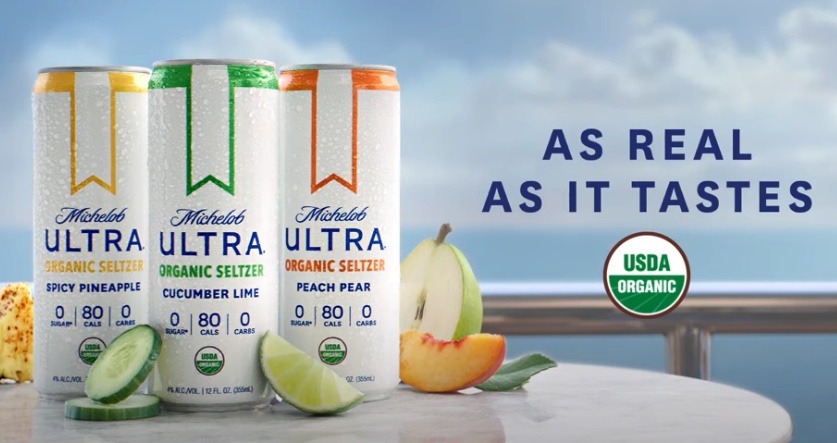

Michelob ULTRA Organic Seltzer reveals Super Bowl Commercial
By Drew Weisholtz
In an ad featuring what appears to be Serena Williams, Sylvester Stallone, Lucy Liu, Megan Fox, Maluma and Usher, Michelob is again providing amazing exposure for organic.

Organic Produce Sales Growth Tops 14% in 2020
By Jessi Devenyns
The top three categories with the largest sales increases were packaged salads (15.4%), berries (strawberries, blueberries and raspberries) at 12.2%, and apples (11.1%).

How America’s Food System Could Change Under Biden
By Kim Severson
While the Organic Trade Association is putting its faith in USDA Secretary nominee Tom Vilsack, the Center for Food Safety has outlined 7 reasons why he should not be confirmed.

Organic Candy Company Torie & Howard is Acquired
Co-founded by Torie Burke and Howard Slatkin in 2012, Torie & Howard has been purchased by American Licorice.
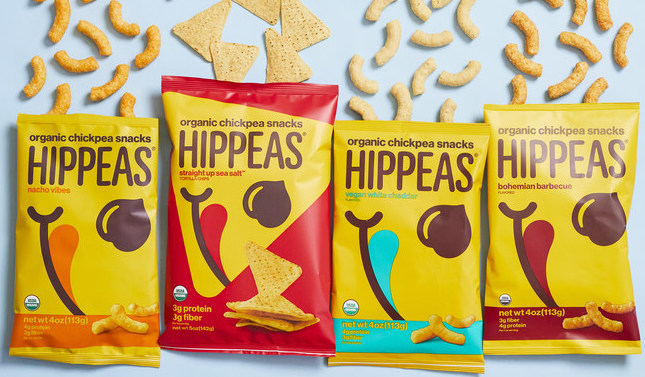

HIPPEAS Organic Chickpea Snacks raises $50M
HIPPEAS, one of the fastest-growing companies in our industry, has closed a big financing with The Craftory Limited.

Biden Might Finally Ban the Super-Toxic Chlorpyrifos
By Ian Kumamoto
Even as farm workers alleged in lawsuits that chlorpyrifos had made them sick, Trump’s EPA refused to ban it.
Organic Industry Sees Boom in Sales During Pandemic
By Noah Fish
From the biggest organic farmer cooperative in the United States to an independent organic farmer in southeast Minnesota, the pandemic brought big business.

Lawsuit Against Impossible Foods Moves Forward
The Center for Food Safety's lawsuit is based on the FDA failing to demand the required safety tests and that its approval was not based on "convincing evidence."

Imperfect Foods secures $95M Investment
By Sam Danley
Now, a national full-service grocer, Imperfect Foods just closed a $95M Series D financing from Insight Partners and Northwest Venture Partners.
India Farming Protests Resonate with U.S. Agriculture
By Scott McFetridge
Small farmers in India face perilous changes in the marketplace, which will favor large-scale farming and more corporate control -- and the environmental consequences that come along with that.
Want to share this newsletter on social media? You can use this link: Newsletter Link
The material in this newsletter is copyrighted and may be reprinted by permission only. All requests must be in writing. Please use our contact form to request republication rights.
Newsletter Archive
Quick Hits
* Congrats to Alexandre Family Farm for becoming the first and only Regenerative Organic Certified dairy farm in the U.S.
* Important NYT story about an organic peanut farmer in Georgia: Two Biden Priorities, Climate and Inequality, Meet on Black-Owned Farms.
* The Bionutrient Food Association’s 10th Annual Soil & Nutrition Conference will be held virtually every Thursday at 3pm EST, from February through September.
* The rapidly-growing organic beverage brand Lemon Perfect is leaving LA for Atlanta.
* On February 25th, Steven Hoffman will be interviewing Whole Foods Market Co-Founder/CEO John Mackey on his live Zoom show Compass Coffee Talk. Registration is free.
* Rodale Institute’s new virtual campus now makes decades of regenerative organic research and expertise available on demand.
* Thrive Market has given a progress update on Food Equality Now.
* Organic, plant-based broth company Beyond Broth has rebranded to Grace’s Goodness Organics.
* This new synthetic biology test could force the natural products industry to define its position.
* The world’s largest organic wine fair is now digital.
* We had a fantastic turnout last night on Clubhouse talking about the HumanCo SPAC and 2021 Trends. Thanks to Jason Karp and Kat Cole from HumanCo SPAC for their time and great insight. Please join us next Tuesday at 8pm EST (follow @organicinsider on Clubhouse) where we’ll be having a conversation about this newsletter.
